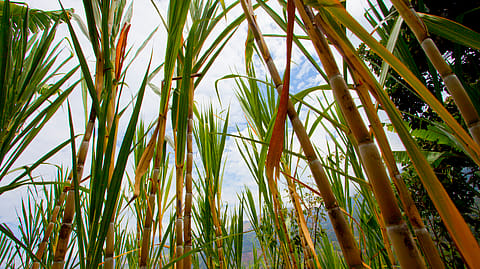India’s first bio-plastic plant to rise in Uttar Pradesh, setting global benchmarks for green manufacturing
The facility is coming up adjacent to Balrampur Chini Mills' existing sugar factory in Kumbhi with an investment of ₹2,850 crore.

India’s first bio-plastic, or Polylactic Acid (PLA) biopolymer manufacturing facility, will be established by Kolkata-based Balrampur Chini Mills Ltd (BCML) in Kumbhi, Uttar Pradesh, by October next year.
The foundation stone for the bio-plastic plant was laid by Yogi Adityanath, Chief Minister of Uttar Pradesh, on February 22. Speaking at the foundation stone-laying ceremony, Adityanath said the state government would develop a bioplastic cluster around BCML’s anchor PLA production unit. Uttar Pradesh announced a Bioplastic Industry Policy last year to encourage such units in the state.
The facility, coming up adjacent to BCML’s existing sugar factory in Kumbhi with an investment of ₹2,850 crore, will set a new global benchmark by operating on 100% renewable energy. It will also be the first facility where the entire manufacturing cycle—from sugarcane to sugar to PLA—happens on a single integrated site.
With an annual capacity of 80,000 tonnes of PLA, the plant, once fully operational, will use up 70% of BCML’s sugar production from the Kumbhi unit. “By producing PLA at an industrial scale, we are not only reducing dependence on fossil fuels but also setting new benchmarks for responsible manufacturing. With this biggest investment in the company’s 50-year legacy, BCML continues to pave the way for an eco-friendly, self-reliant India, positioning the country as a global leader in biopolymer manufacturing,” said Vivek Saraogi, chairman and managing director of BCML.
PLA can replace single-use plastic in the production of commonly used items like straws, disposable cutlery, food trays, bottles, curd cups, carry bags, and more. It can also be anaerobically digested to produce biogas and fertiliser, tackling both waste and emissions.
The BCML project is expected to generate 225 direct jobs in manufacturing, R&D, and operations while creating 2,000 indirect jobs across the value chain. “This plant is a testament to the synergy between progressive policy frameworks and private sector innovation. It will help position Uttar Pradesh as a leader in biopolymer production, boosting industrial growth and making India a key player in the global bio-based economy,” said Avantika Saraogi, executive director of BCML.
With 10 sugar factories across Uttar Pradesh, BCML is one of India’s largest integrated sugar companies, with distillery operations and power cogeneration.